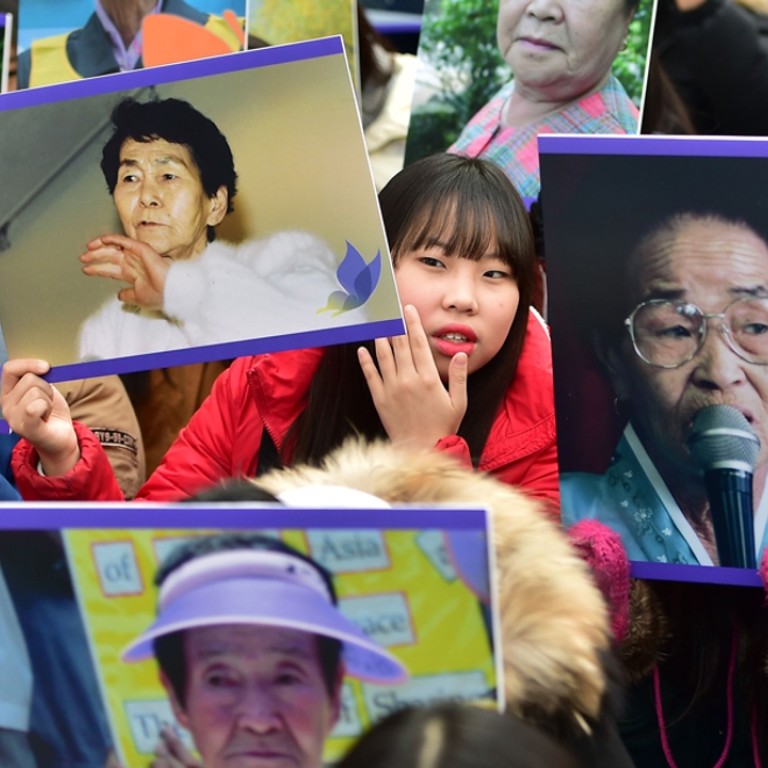
Japan’s deal on ‘comfort women’ stills lacks one crucial element – a heartfelt apology to all Asians
Pact with South Korea is a step in the right direction but to truly mend fences Tokyo has still to convince neighbours it is sincerely sorry for war atrocities
Prime Minister Shinzo Abe has passed up two historic opportunities this year to make a breakthrough in reconciliation with his country’s former enemies over Japanese war crimes. The first was a speech to a joint session of the US Congress. The second was a statement marking the 70th anniversary of Japan’s surrender. In neither did he go further than statements of contrition by predecessors in office. On one issue in particular – hopes for a sincere personal apology to surviving “comfort women” forced to provide sexual services to Japanese invaders – he disappointed expectations with evasive references.
READ MORE: ‘Comfort women’ deal: compensation and apology from Shinzo Abe as rivals South Korea and Japan reach landmark deal on wartime sex slaves
The resolution this week of the impasse between Japan and South Korea over this issue therefore comes as a surprise. It is also a potentially dramatic advance, not least because it includes an apology from Abe for the physical and mental scarring of former sex slaves, even if he did not deliver it in person.
The deal sealed in Seoul by the two countries’ foreign ministers includes a US$8.3 million aid fund from Tokyo for the 46 surviving sex slaves. Hopefully it marks a turnaround in decades of distrust and animosity between the two democracies. That said, it could have done without a sense of expediency, and with at least a positive sign that the suffering of comfort women from China, the Philippines, Indonesia and Taiwan might also be recognised before too long. Analysts were quick to question whether Japan made a concession, despite right-wing domestic opposition, under pressure from the US, or really was sorry.
READ MORE: Why Japan’s ‘comfort women’ apology is a coup for Washington and a blow for Beijing
They point out that US officials, keen to maintain a united front against a rising China, had been urging South Korean officials to improve ties with Japan. And Beijing reflected the doubts by repeating calls for Japan to deal with all historical issues and noting that forced recruitment of comfort women was a crime against humanity inflicted on all the people of Asia.
Posted by 安倍昭恵 on Monday, December 28, 2015
READ MORE: South Korean group pledges to erect more ‘comfort women’ statues despite Japan’s apology
Tokyo’s gesture may undermine Beijing’s efforts to enlist Seoul in a campaign for greater awareness of the two countries’ suffering, but it also underscores the need for Japan to go further than convenient bilateral deals. Japan still has to deal sincerely with its past and mend fences with neighbours, particularly China, before it can move confidently towards the future. The starting point has to be a heartfelt apology to all Asians.

